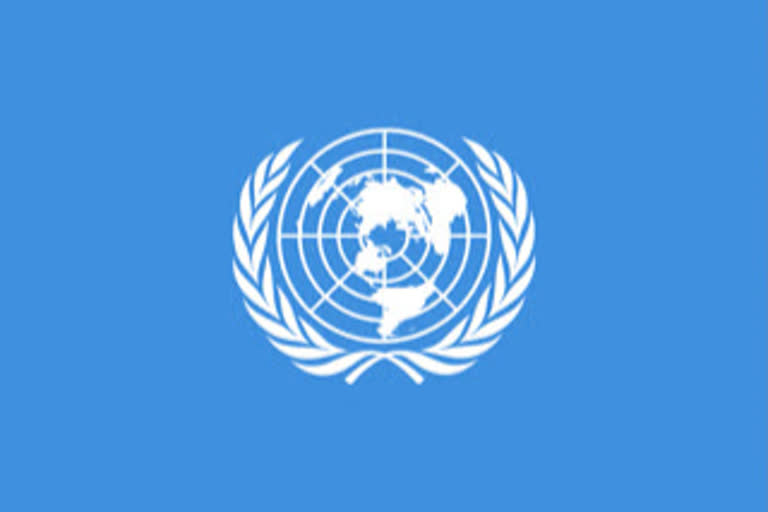Srinagar: In a letter to the Indian government, four UN Special Rapporteurs have addressed concerns about the plight of human rights conditions in the State of Jammu and Kashmir. The letter raises concerns of human rights violations following restrictions imposed by the administration post the abrogation of Jammu and Kashmir's semi-autonomous status and the communication blockade aftermath that followed on August 5, 2019, in particular citing 'arbitrary detentions, violations to the prohibition of torture and ill-treatment, right to health and rights of persons belonging to minorities.'
The letter, published on Wednesday on OHCHR's website, states that if a delay in response within 60 days of it being sent is caused, the said communication or the government's revert shall be made public; and subsequently made available to the report presented by the Human Rights Council. The letter was sent to the Indian government on May 4, 2020.
The letter opens with the concern that 'no reply has been received' from the government with regards to prior letters being penned about the issues pertaining to 'freedom of expression, and peaceful assembly, concern on the reported mass crackdown targeting those expressing dissent against the same decision taken by the government,' post the abrogation of Jammu & Kashmir semi-autonomous status on August 05, last year.
Stating that they are 'still deeply concerned about the ongoing human rights violations', the rapporteurs claim that based on the information received by them, "between January and July 2019, a number of Kashmiri Muslims, persons belonging to minorities in India, were reportedly summoned to report to various army camps where they were subjected to corporal punishment by security officials."
Also read: MHA suspends Jammu and Kashmir IPS officer Basant Rath for 'misconduct'
Citing that they do not wish to prejudge the accuracy of these allegations, they expressed 'grave concern at the alleged excessive use of force, torture and other forms of ill-treatment reportedly committed during the arrest and detention, and death in custody of the above-mentioned persons'.
The letter also said that they are 'further concerned' that these individuals reportedly belong to minorities residing in the state of Jammu and Kashmir who 'appear to be targeted based on their ethnicity and/or religious identities'.
"Should these allegations be confirmed, they would constitute violations of articles 2, 6, 7, 9, 21, 26 and 27 of the International Covenant on Civil and Political Rights(ICCPR) ratified by the State of India on April 10, 1979, as well as articles 2 and 16 of the Convention against Torture and other Cruel, Inhuman or Degrading Treatment or Punishment (CAT), which codify the absolute and non-derogable prohibition of torture and other cruel, inhuman or degrading treatment or punishment. They would also contravene the protections provided for by the Declaration on the Protection of all Persons from Enforced Disappearance adopted by General Assembly resolution 47/133 of 18 December 1992, specifically articles 2, 7, and 10, as well as the Declaration on the Rights of Persons Belonging to National or Ethnic, Religious and Linguistic Minorities, in particular articles 2, 3 and 4.” the letter says.
Being concerned over the alleged arbitrary arrests, 'torture and other ill-treatment' which, in at least four cases reportedly led to the death of the victim, 'appears to be inflicted against persons belonging to minorities targeted because of their ethnic and religious identities', who 'had been exercising their freedom of expression and peaceful assembly'.
The Rapporteurs also noted that among the instances cited, three minors were reportedly subjected to severe beatings. The United Nations Human Rights Committee has determined that "arresting or detaining an individual as punishment for the legitimate exercise of the rights guaranteed by the Covenant constitutes a violation of article 9" (General Comment 35, para 17). Furthermore, Resolution 8/8 of the Human Rights Council reminded Governments that corporal punishment, including of children, can amount to cruel, inhuman or degrading punishment or even to torture.
Also read: Students not keen to go abroad amid pandemic, career counsellors worst hit
Urging the government to prompt impartial investigations for the 'arbitrary killings, torture, and ill-treatment and to prosecute suspected perpetrators', the letter points at the inter alia under articles 6 and of the ICCPR, and articles 7 and 12 of the CAT.
In the end, the letter demands information and inquiry into the factual and legal grounds for the arrest and detention of the persons mentioned identifying as ethnicity and/or religious minorities and an explanation as to how these measures are compatible with international standards related to the right to liberty and security of the person, enshrined in article 9 of the ICCPR, and the prohibition of discrimination based on religion contained 1n article 26 of this treaty. Also, the steps were taken by the Indian government to protect rights of members of 'these minorities to freely and peacefully exercise their rights, including the freedom of expression and of peaceful assembly' and investigation and judicial or other inquiries which may have been carried out, or which are foreseen, into the allegations of 'torture and other cruel, inhuman or degrading treatment or punishment alleged to have been inflicted upon the persons whose cases are described above, whether in military or police custody'.
The letter urged that all necessary interim measures be taken to 'halt the alleged violations' and prevent their re-occurrence and in the event that the investigations support or suggest the allegations to be correct, to ensure the accountability of any person(s) responsible for the alleged violations.



